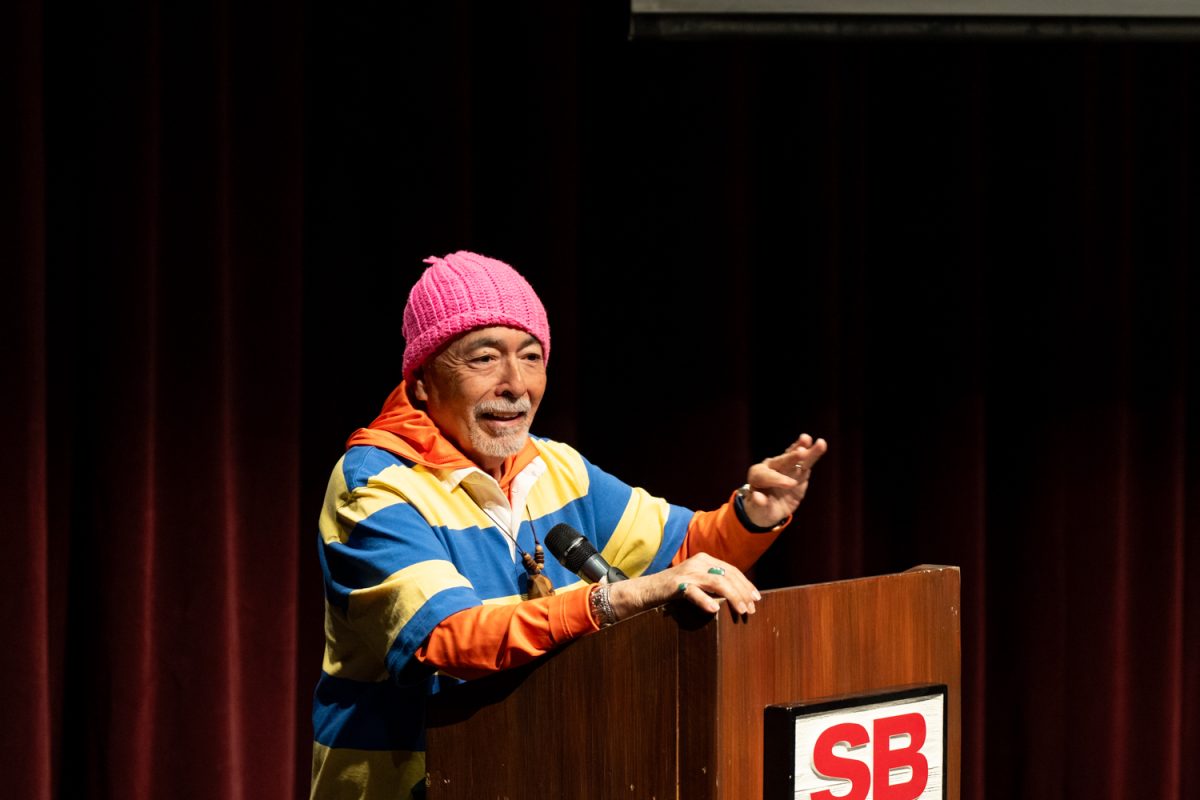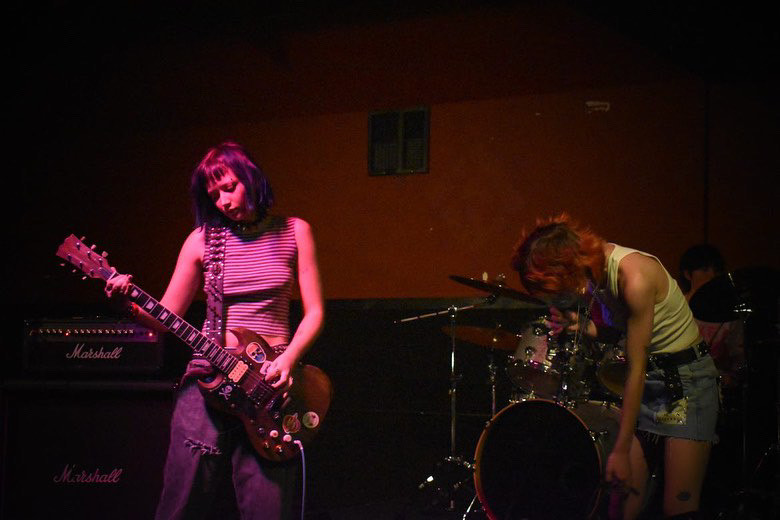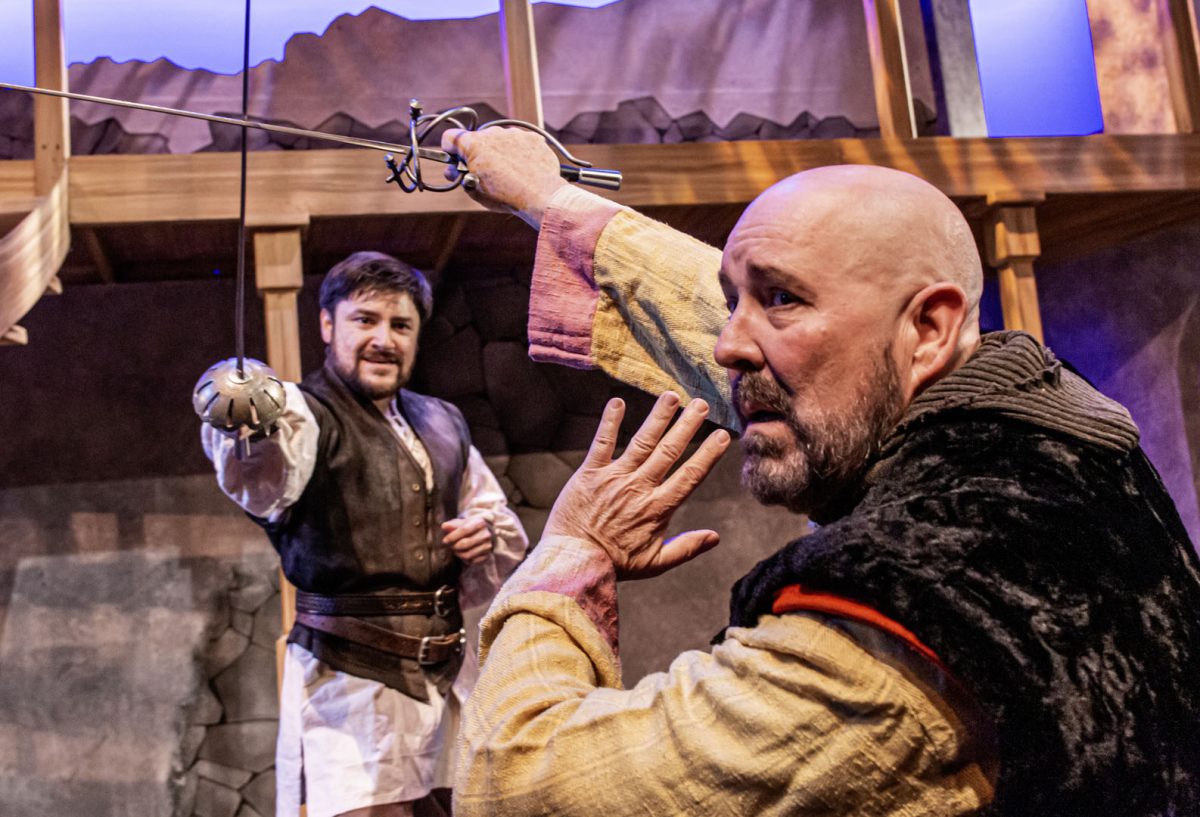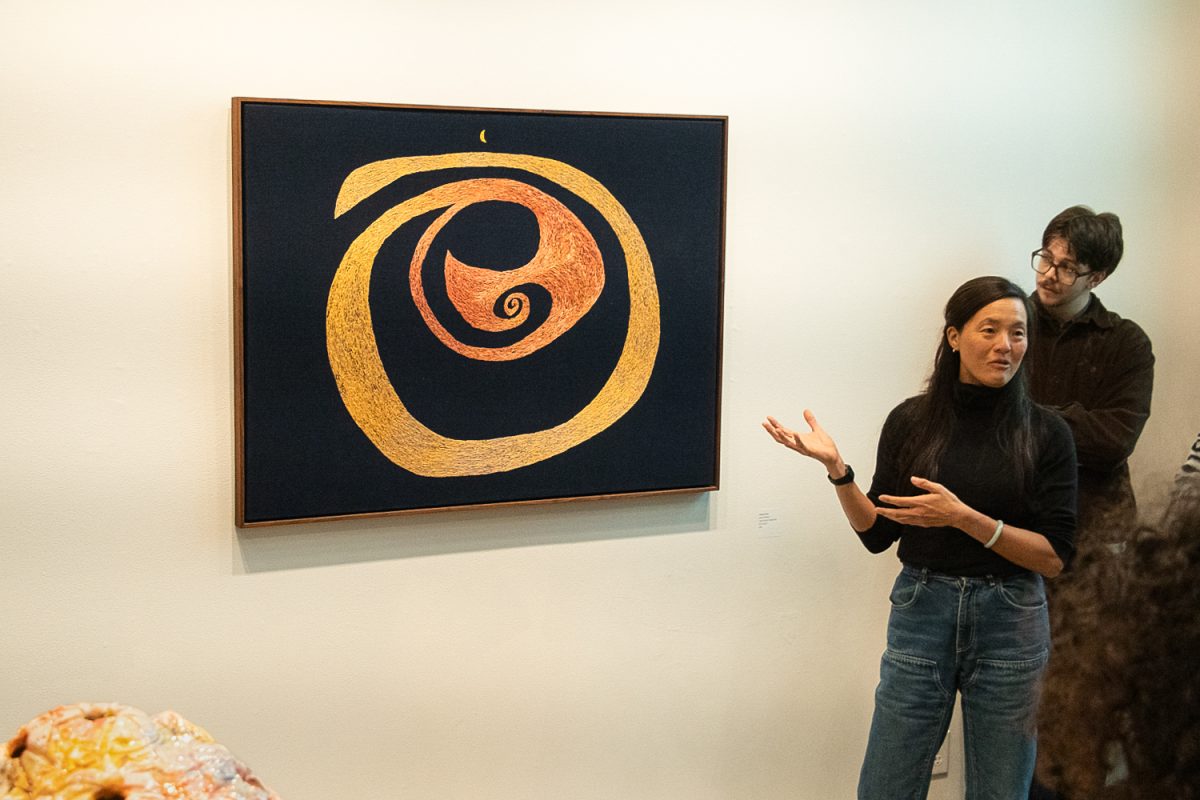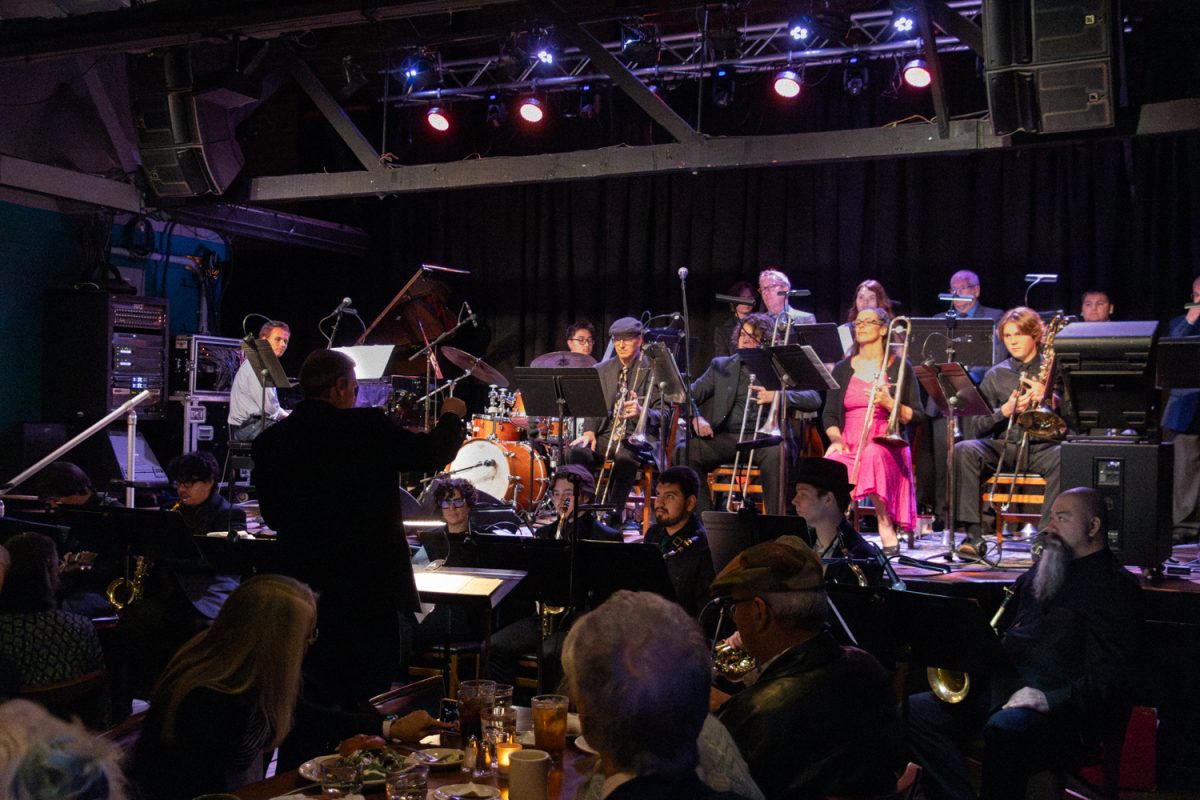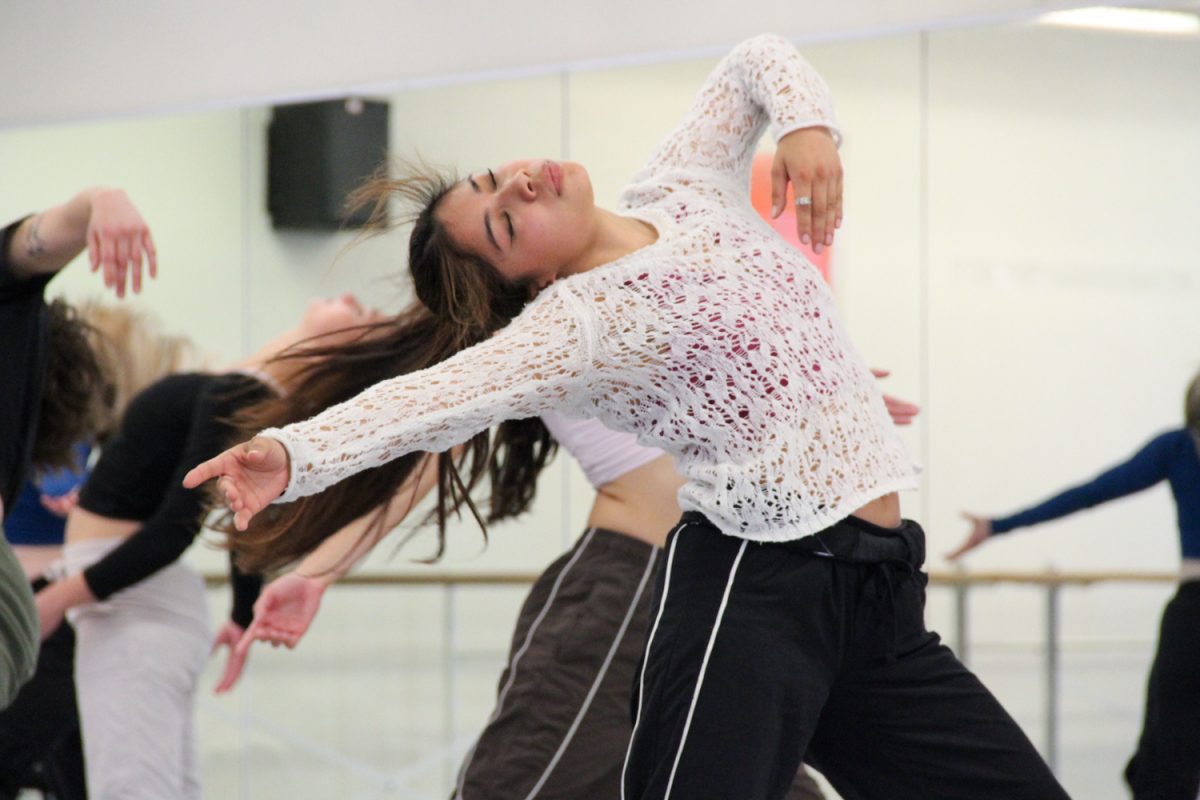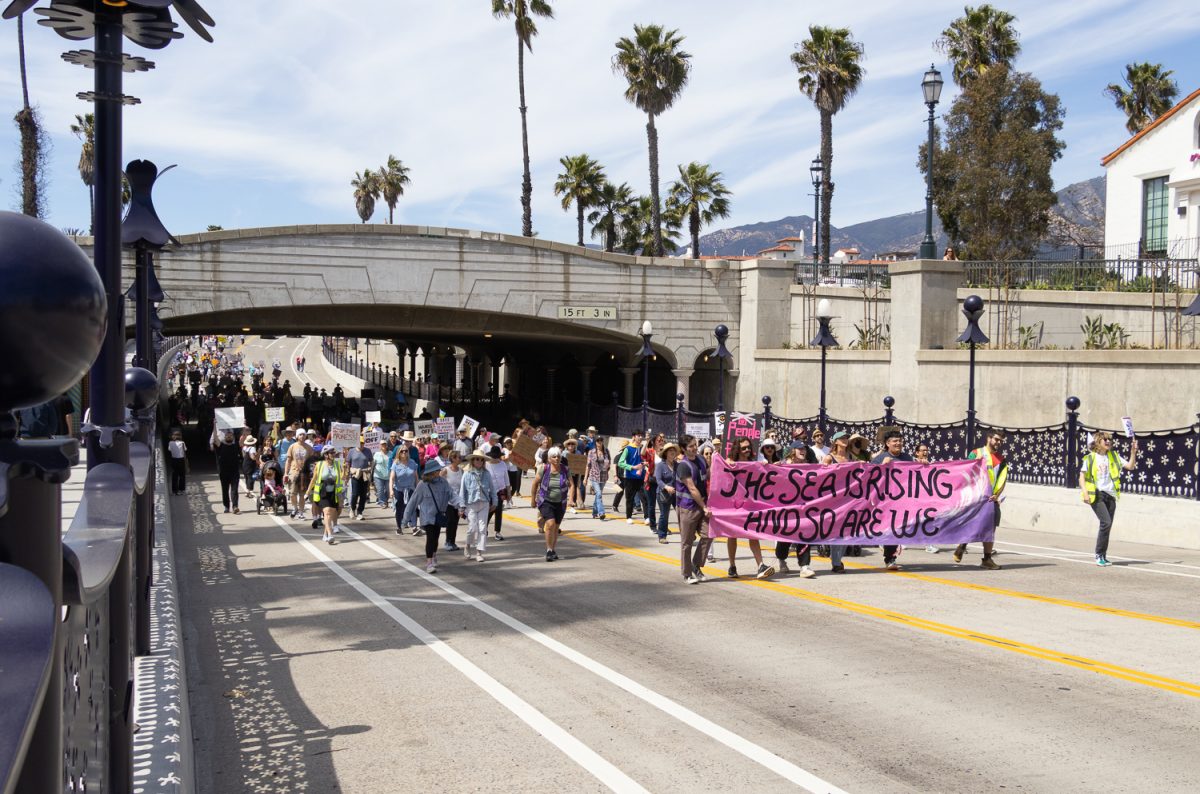On April 2 Juan Felipe Herrera took to City College in the Garvin Theater to talk about poetry during National Poetry Month and how it can help amplify your voice.
National Poetry Month was established by the Academy of American Poets in 1996 to recognize poetry in culture and education during the month of April.
Herrera, an educator, activist, and poet, stood among students and faculty members to give insights into his long-term background with poetry.
“A poem begins with an awareness of each other, it begins with unity, it begins with friendship, it begins with simply exchanging and being human beings and accepting each other,” Herrera said. “ There would be no poetry without our real selves.”
Herrera, a first-generation Latino poet, has used his platform to amplify voices within minority communities, encouraging creative expression among a diversity of people.
Herrera’s connection to poetry has been shaped by his love for history and the power of storytelling; he used that knowledge to pioneer the next generation in the art of written or spoken word poetry.
“I started with images and photographs of my extended family and all the stories were by my mother and her photo album,” Herrera said. “It was her voice and that’s number one, our voice, if we want to write poetry we’re going to have to let our voices emerge and we can’t be afraid of our voices, we can’t be afraid of being vocal or having thoughts.”
Herrera went on to speak about his struggles with using his own voice and preferring to stay quiet in his youth. Ultimately letting go of those fears led him on the path he’s on today. He told the audience that he never liked speaking up in class even if he knew the answer and referred to himself as a “back row boy” because he’d rather sit in the back of the classroom than the front.
“It’s easy to be afraid, I was afraid for years and I didn’t want to speak for years,” Herrera said. “I was the most silent person and the most silent student until I was confronted and then I had to speak which made things difficult, but I had to get in touch with my inner self, and our voices are our inner selves.”
Herrera then encouraged his audience to use their voices, especially during such a time he and they are living in. He went on to speak on the importance of using your voice either through pen and paper, vocally, or however you choose to express yourselves in times in and out of a crisis.
“You don’t want to be silent in these times, people are getting deported day by day,” Herrera said. “Imagine if you and I don’t speak up, imagine if you and I don’t write, imagine if you and I are afraid to write a poem or say we don’t know how to write a poem, we’re going to go back to being silent and we’re going to be seen as silent, our brothers and sisters have already been silenced so we want to speak up and write.”
Herrera concluded by encouraging everyone to not be afraid of their own voices and to go out and shape the world through the art of poetry in whatever form they find that it calls to them creatively.


